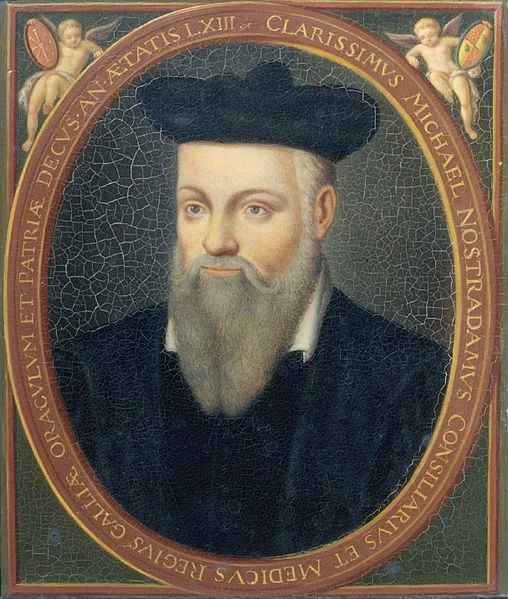
Do I believe in portents, omens, signs?
Can crystal balls predict tomorrow's news?
I might admit that after a few wines
I could, conceivably, accept such views.
For Nostradamus had such great success,
though he achieved it quite posthumously.
Then, some would have it that I must confess
concerning John, the son of Zebedee,
that his predictions are in part proved true,
and many more, in time, shall be fulfilled.
Or were some vague prognostications used
as tools with which a hopeful throng could build
their vision of a future victory,
in contrast to the darkness of their days?
Is there a chance these harbingers could be
a trick by which the clever can amaze
some people so determined to believe
in something... anything... out of the norm?
Just look at modern prophets to perceive
how easily this fits in with their form.
A simple formula will handle it:
suggest a premonstrance, vague is the best;
then future devotees select a fit
from countless explanations -- passed the test!
I see no reason we should waste our time
in fear of things we have no means to change.
Such efforts lack in reason and in rhyme,
and, frankly, seem to me a little strange.
So, when the soothsayers begin their spin,
just smile and send them quickly on their way;
be thankful that you were not taken in,
and concentrate on living for today.
|
Author Notes
Today's word: premonstrance (n.) a portent, an omen.
My much-treasured Christmas present for 2017 is a book by Paul Anthony Jones: "The cabinet of linguistic curiosities". Each page contains a descriptive story about some obscure or archaic word. It occurred to me it would be a fun exercise to try and write, each day, a poem featuring the "word of the day" from the book.
Thanks for reading.
Image: Michele de Nostredame (Nostradamus), public domain.
|
|



